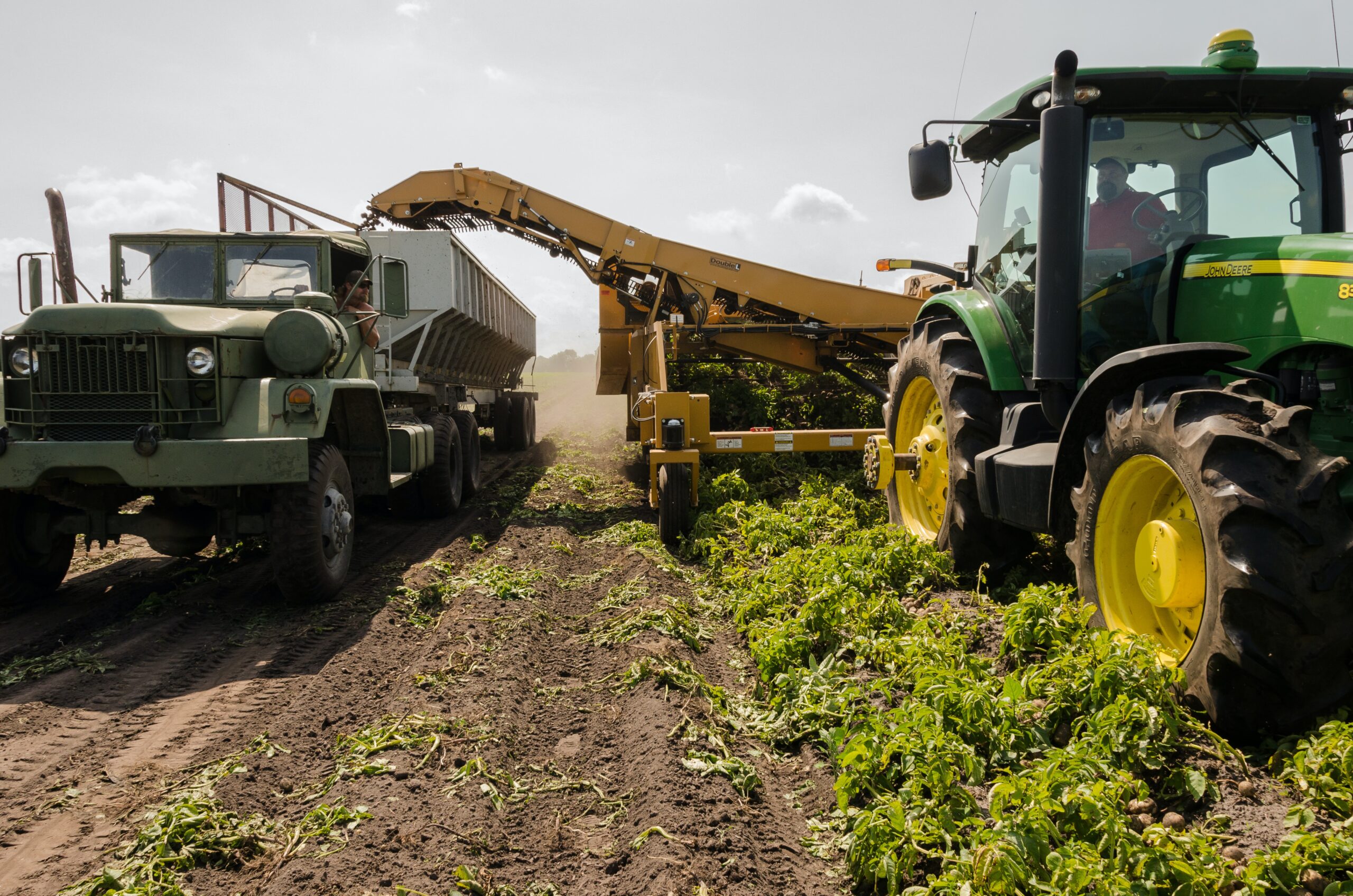Agribusiness in Africa has immense potential due to the continent’s vast land resources, favorable climate, and abundant labor. The World Bank projects that the agribusiness sector in Africa will grow into a US$1 trillion industry by 2030, which would make it a significant contributor to the continent’s economic growth.
However, despite having 60% of the world’s uncultivated arable land, Africa still faces significant challenges when it comes to food security, poverty, and rural development.
The sector is dominated by smallholder farmers who often lack access to modern technologies, finance, and markets. This results in low agricultural productivity, which in turn leads to heavy reliance on food imports to meet the continent’s growing demand.
It is apparent that Africa’s full agribusiness potential has yet to be achieved. To overcome these obstacles, the sector must be modernized through improving access to technology, money, and markets. Africa’s agricultural output can thus be boosted, resulting in better food security, poverty reduction, and rural development.
The Current State of Agribusiness in Africa
If you are looking to invest in agribusiness in Africa, it is important to understand the current state of the industry. While the continent has vast agricultural potential, there are also significant challenges facing the sector.
Agriculture is a crucial sector for Africa’s economy and employment. According to the World Bank, agriculture accounts for around 15% of Africa’s GDP and employs around 60% of the continent’s population. That’s a lot of people!
However, despite its importance, the current state of agriculture in Africa is facing some challenges. The FAO reports that many African countries still struggle with low productivity, food insecurity, and poverty. Climate change is also affecting agriculture in Africa, with droughts and floods becoming more frequent and severe.
Despite these challenges, there are some positive developments in African agriculture. For example, the World Bank reports that some African countries are investing in modernizing their agriculture, such as through the use of technology and better infrastructure.
Additionally, the FAO reports that African countries are working to improve their policies and regulatory environments to support the growth of agriculture.
Overall, agriculture is a vital sector for Africa’s economy and employment, but there are still challenges that need to be addressed to ensure its continued growth and success.
Challenges Facing Agribusiness in Africa
Agribusiness in Africa faces several challenges that hinder its growth and success. These challenges include limited access to finance, poor infrastructure, climate change, a poor policy and regulatory environment, lack of access to markets, limited use of technology, lack of skills and training, and land tenure issues. Addressing these challenges is crucial to ensure the continued growth and success of agribusiness in Africa.
Limited Access to Finance:

Access to finance is a major challenge for agribusinesses in Africa, particularly for smallholder farmers. Many farmers struggle to access credit to invest in inputs, such as seeds and fertilizers, or to purchase equipment. For example, in Nigeria, only 2% of farmers have access to credit from formal financial institutions.
Poor Infrastructure:
Poor infrastructure, such as inadequate roads and storage facilities, can hinder the growth of agribusiness in Africa. This can make it difficult to transport goods to markets and can result in post-harvest losses. For example, in Uganda, up to 30% of harvested crops are lost due to poor storage facilities.
Climate Change:

Climate change is a significant challenge for agribusiness in Africa, with droughts, floods, and other extreme weather events becoming more frequent and severe. This can affect crop yields and productivity, and can also increase the risk of pests and diseases. For example, in Ethiopia, climate change is expected to reduce maize yields by up to 10% by 2050.
Poor Policy and Regulatory Environment:

A poor policy and regulatory environment can hinder the growth of agribusiness in Africa. This can include burdensome regulations, corruption, and a lack of transparency. For example, in Zimbabwe, a complex and inconsistent regulatory environment has made it difficult for farmers to access markets and inputs.
Lack of Access to Markets:

Access to markets is a key challenge for agribusinesses in Africa, particularly for smallholder farmers. Many farmers struggle to access markets due to poor infrastructure, limited information, and a lack of market linkages. For example, in Ghana, many smallholder farmers struggle to sell their produce due to a lack of market information and linkages.
Limited Use of Technology:

The limited use of technology, such as precision agriculture and mobile applications, can hinder the growth of agribusiness in Africa. This can result in lower productivity and higher costs. For example, in Kenya, many farmers still rely on traditional farming methods, which can be inefficient and ineffective.
Lack of Skills and Training:

A lack of skills and training can hinder the growth of agribusiness in Africa. This can result in lower productivity and lower quality produce. For example, in Malawi, many farmers lack the skills and knowledge to effectively manage their farms and improve their yields.
Land Tenure Issues:

Land tenure issues, such as unclear land ownership and insecure land rights, can hinder the growth of agribusiness in Africa. This can make it difficult for farmers to invest in their land and to access credit.
For example, in Tanzania, land tenure issues have led to conflicts between farmers and pastoralists, which have hindered the growth of agriculture in the country.
Opportunities for Growth in African Agribusiness
Despite these challenges, there are also many opportunities for growth in African agribusiness. One of the most promising areas is the creation of the African Continental Free Trade Area (AfCFTA), which is expected to boost intra-African trade and create new markets for agricultural products.
Another area of potential growth is the adoption of new technologies. For example, precision agriculture, which uses sensors and other technologies to optimize crop yields, has the potential to revolutionize farming in Africa. Similarly, the use of mobile phones and other digital technologies can help farmers access information about weather patterns, market prices, and financing options.
Finally, there is also significant potential for agribusiness in Africa to produce value-added products. By processing raw agricultural products into finished goods, African farmers can capture more of the value chain and create new revenue streams.
Overall, while there are certainly challenges facing agribusiness in Africa, there are also many opportunities for growth and investment.
By understanding the current state of the industry and staying up-to-date with new technologies and trends, you can position yourself to take advantage of these opportunities and help drive the growth of African agribusiness.
Successful Agribusiness Models in Africa
If you are looking for successful agribusiness models in Africa, there are plenty of examples to draw from. In this section, we will explore some of these models and the lessons that can be learned from them.
Blue skies

One example of a successful African agribusiness is the Ghana-based company, Blue Skies. Founded in 1998, Blue Skies has grown to become a major supplier of fresh-cut fruit to supermarkets across Europe. The company has achieved this success by focusing on quality, sustainability, and innovation.
For example, Blue Skies has developed packaging materials that are both environmentally friendly and effective at preserving the freshness of its products.
Greenpath food
Another example of a successful African agribusiness is the Ethiopia-based company, GreenPath Food. Founded in 2010, GreenPath Food produces organic honey and spices for export to Europe and North America. The company has achieved success by focusing on quality, sustainability, and fair trade.
For example, GreenPath Food works closely with local farmers to ensure that they receive fair prices for their products and that the products are grown in an environmentally friendly way.
-
- GreenPath Food’s focus on sustainability and environmental stewardship has resonated with consumers.
-
- The company built strong relationships with its suppliers and customers to build trust and loyalty.
-
- Impact: GreenPath Food has helped to promote sustainable agriculture and provide healthy, organic produce to consumers in Ghana.
Twiga Foods (Kenya)

Twiga Foods is a mobile-based supply platform that connects farmers to urban retailers in Kenya. The company has been successful due to its innovative business model, which leverages technology to streamline the supply chain and reduce costs for both farmers and retailers.
Twiga Foods has also invested in building strong relationships with its suppliers and customers, which has helped to build trust and loyalty.
-
- Twiga Foods leveraged technology to streamline the supply chain and reduce costs for farmers and retailers.
-
- The company built strong relationships with its suppliers and customers to build trust and loyalty.
-
- Impact: Twiga Foods has helped to increase farmers’ incomes and reduce food waste by connecting them with urban retailers.
Agricare (Uganda)

Agricare is a Ugandan agribusiness that produces and sells high-quality seeds and other agricultural inputs. The company has been successful due to its focus on quality and customer service, which has helped to build a strong reputation and loyal customer base.
Agricare has also invested in building strong relationships with its suppliers, which has helped to ensure a reliable supply chain.
-
- Agricare’s focus on quality and customer service has helped to build a strong reputation and loyal customer base.
-
- The company built strong relationships with its suppliers to ensure a reliable supply chain.
-
- Impact: Agricare has helped to improve agricultural productivity and food security in Uganda by providing high-quality seeds and other inputs to farmers.
Lessons Learned from Successful African Agribusinesses
One of the key lessons that can be learned from successful African agribusinesses is the importance of quality. Whether you are producing fresh-cut fruit or organic honey, your products must meet high standards of quality. This means investing in the right equipment, training your staff, and ensuring that your products are tested and certified by reputable organizations.
Another lesson that can be learned from successful African agribusinesses is the importance of sustainability. This means taking a long-term view of your business and ensuring that your operations are environmentally friendly and socially responsible.
This can include investing in renewable energy, reducing waste, and working with local communities to promote sustainable agriculture practices.
Finally, successful African agribusinesses have learned the importance of innovation. This means constantly looking for new ways to improve your products, processes, and business model. For example, you might invest in new packaging materials, explore new markets, or develop new products that meet the changing needs of your customers.
Many successful agribusiness models in Africa can serve as inspiration for entrepreneurs and investors. By focusing on quality, sustainability, and innovation, these businesses have achieved impressive results and are helping to drive economic growth and development across the continent.
Conclusion.
African agribusinesses play a crucial role in the economic development of the continent. Despite facing several challenges such as limited access to finance, poor infrastructure, and climate change, there are many examples of successful African agribusinesses that have overcome these challenges and made a positive impact in their communities.
By addressing these challenges and learning from successful examples, African agribusinesses can continue to grow and contribute to the development of the continent.







